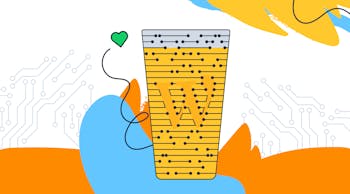A programmer should possess a wide array of skills, from hard technical skills to the always important, but sometimes forgotten, soft skills. One thing you might not realize is that a lot of programming skills are useful in everyday life, too. No, we’re not talking about being fluent in HyperText Markup Language (HTML), web performance, or responsive design (although we could debate that those areas of expertise are invaluable to have).
We’re referring to a particular skill set that tends to get diminished as actual skills; skills that take time to learn and perfect. We’re talking about soft skills.
Check out five important programming skills you can use both in and out of the programming space.
ORGANIZATION
Many people don’t realize it, but organization is the king of soft skills. Maintaining a strong level of organization is useful in any career field, and daily life as well. Just as you would organize your codes, you can also organize the spices in your kitchen so you know where everything is as you're cooking. From your personal schedule and craft room, to your files, closet, and everything in between, strong organizational skills save you time and can keep things from getting overwhelming.
TESTING AND DEBUGGING
This one might seem like an odd one, but hear me out. Testing and debugging is just a programmer’s version of trial and error. In life, there will always be problems; our job is to work towards finding solutions to either solve the problem or work around it. More often than not, this takes a little trial and error. If you run into daily traffic to or from work, you would try new and different routes until you find the one that works best for you, just as you would try different codes until you get the result you want.
COMMUNICATION SKILLS
When explaining to an employer why it’s important to optimize their images for their websites, you have to break it down in a way that they will understand, just as you explain to a child why throwing a tantrum isn’t a way to get what they want. This doesn’t mean that you should speak to them as you would a child, but more so modify how you present the information that best suits them. Just as organization is the king, communication is the queen, in both work and daily life.
CREATIVITY
Creativity is the basis for almost everything we do in and out of the workplace. It can provide confidence in problem-solving situations and help us better clarify our thoughts and feelings for better communication skills. Creativity also allows us to express ourselves in a way that can be stress-relieving, which is important for our mental and emotional health that sometimes takes a beating during daily life.
TEAMWORK
Teamwork is more than a group of coworkers huddling together in a meeting room or zoom call trying to solve a problem. Teamwork is also a group of friends trying to throw a surprise party, or helping a parent on a set of stairs with their stroller. Working together is something that we do naturally, even if we don’t notice it. Strive to be the best team player you can be by keeping an open mind, listening fully, and being considerate of others.
You probably didn’t realize how many skills you possess for a professional setting also help you out in your personal life as well. It’s important to keep these skills sharp so you can perform to the best of your ability, professionally or personally.
As an exercise, try to raise your awareness throughout the day and see what other skills you use at work or at home. You might be surprised by what skills you use!









